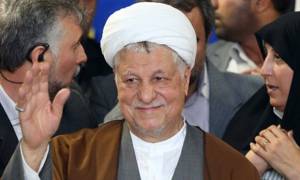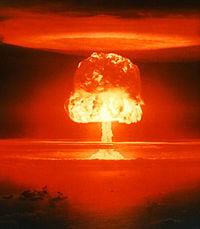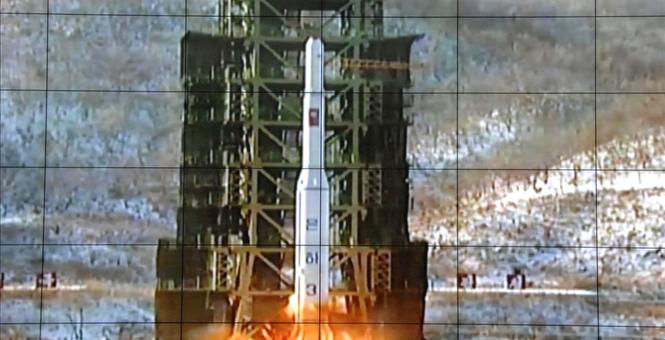
Former Iranian President Akbar Hashemi Rafsanjani (Ebrahim Noroozi/AP)
A report by the National Council of Resistance of Iran quotes former Iranian President Rafsanjani as conceding in an Arab-language interview that the Islamic regime has been pursuing the bomb since the 1980s.
Former Iranian President Akbar Hashemi Rafsanjani appears to have acknowledged in a recent interview with the Islamic Republic News Agency (IRNA), the official media outlet of the Islamic Republic, that Iran has been pursuing the bomb since it began its nuclear development program in the 1980s.
Rafsanjani, who was president from August 1989 until August 1997, reportedly conceded in the Arab-language interview, published on Monday, that “from the onset there has been a comprehensive clandestine nuclear plan, including construction of secret sites, enrichment of uranium, manufacture of centrifuge parts, laser technology, and the heavy water reactor.”
According to the National Council of Resistance of Iran (NCRI), a “parliament-in-exile” with more than 500 members of diverse ethnic and religious minorities aiming to establish a secular democratic republic in Iran, which exposed the Arabic-language IRNA interview, “Rafsanjani also admitted that ‘80% to 90% of the Iranian people… concur with the nuclear accord and want to be done with it [nuclear project].’ Thus, he alludes to years of falsification in [the] regime’s propaganda that the nuclear project is popular with the Iranian people.”
Rafsanjani’s admissions, NCRI says, include “details that confirm the validity of disclosures by the resistance since 1991.”
Following are some of the points made in the interview, as reported by NCRI.
When Iran started its nuclear program, with the approval of Supreme Leader Ayatollah Ali Khamenei, it was at war with Iraq, and “we were looking to have this capability [the nuclear bomb] for the day that our enemy would want to resort to the nuclear bomb.” Rafsanjani explains.
The former president claims that Iran’s “basic doctrine was peaceful usage of the nuclear technology, although we never abandoned the idea that if one day we are threatened and it is imperative, we would have the capability for going the other path [towards a nuclear weapon] as well.”
Iranian officials met at least twice with Pakistani nuclear physicist Abdul Qadeer Khan, founder of the nuclear enrichment program for Pakistan’s atomic bomb project, who is widely known to believe that the Islamic world should have the bomb. According to Iranian Resistance disclosures, Khan met with a delegation from the Atomic Energy Organization of Iran.
NCRI quotes Rafsanjani as saying: “We implemented part of our nuclear activity when we were still at war and Iraq… Those years, we were all thinking that we should arm ourselves with deterrent elements, since the war was not about to end, and in our defensive policies we had…in mind that the war may last 20 years.”
According to NCRI, “these statements by Rafsanjani unmistakably reveal [the] regime’s intentions to acquire the nuclear weapon.”
Khamenei ‘Directly Involved in Bomb-Making’
Khamenei was “directly involved in the bomb-making project,” while the Iranian regime, “for foreign consumption,” claimed he had issued a fatwa (Islamic legal decree) according to which the nuclear bomb is forbidden, NCRI continues. “This fatwa has never been put in writing by the regime and it deceives no fool but those who are looking for a pretext to justify trade with this bloodthirsty tyranny.”
In the interview, Rafsanjani revealed that “for the first enrichment…we prepared a workshop beside the hall to build the parts ourselves. We needed special parts, material and metals that we secured.”
He underscored the regime’s “secret nuclear project to construct the heavy water reactor under the mountains,” known as the “Great Plan” to acquire a nuclear weapon.
He also detailed collaboration with China and North Korea.
By: United with Israel Staff

Sign the Petition to Stop a Nuclear Iran
The US Congress must ensure that sanctions against Iran remain in force until the nuclear threat is completely eliminated.
I strongly oppose easing sanctions before the nuclear threat from Iran has been eliminated. Allowing Iran to enrich uranium without being subject to 'anytime, anywhere' inspections is extremely dangerous and unacceptable. Iran's nuclear program must be stopped.
See our Privacy Policy